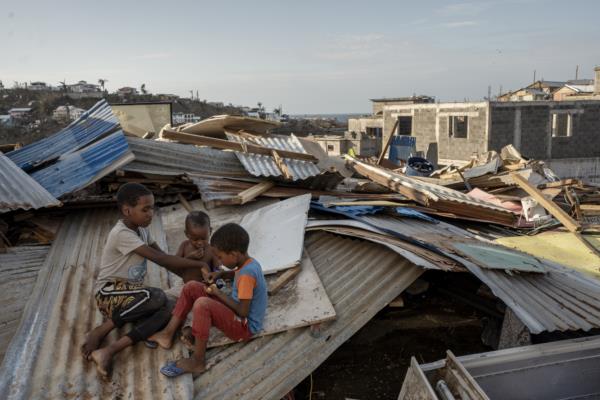
Mayotte, a French territory in the Indian Ocean, faced another natural disaster as Tropical Storm Dikeledi struck just weeks after Cyclone Chido wreaked havoc on the islands. Dikeledi brought heavy rains and strong winds, prompting Mayotte to issue a red alert, urging residents to seek shelter and store essential supplies.
Cyclone Chido, which hit Mayotte on December 14, resulted in at least 39 fatalities, with over 200 individuals still missing and more than 5,000 injured. The recent storm, Dikeledi, caused three deaths in Madagascar before weakening to a tropical storm as it approached Mayotte.
Despite the storm weakening, authorities warned of potential strengthening back into a cyclone. Mayotte faced a high risk of flooding and landslides, leading to the imposition of a red alert and the closure of the international airport, which had suffered damage from Cyclone Chido.
Mayotte's residents, already reeling from the impact of Chido, were urged to seek refuge in cyclone shelters as Dikeledi threatened the islands. The southern village of Mbouini, previously spared by Chido, was flooded and severely damaged by the new storm.





Mayotte, with a population of around 320,000, also hosts an estimated 100,000 undocumented migrants. The territory's vulnerability was highlighted by the aftermath of Cyclone Chido, which left many without proper shelter and infrastructure.
French authorities mobilized emergency personnel and security forces to assist with the response to Dikeledi. The region, prone to cyclones during the November to April season, has experienced a series of severe storms in recent years, including Cyclone Idai in 2019, which caused widespread devastation in Madagascar, Mozambique, Malawi, and Zimbabwe.
The impact of Dikeledi on Mayotte underscores the ongoing challenges faced by the region in dealing with natural disasters and the importance of preparedness and response efforts in safeguarding vulnerable communities.







